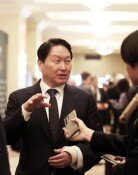Health insurance premium of local subscribers to be lowered
Health insurance premium of local subscribers to be lowered
Posted January. 08, 2024 07:53,
Updated January. 08, 2024 07:53
The South Korean government and the People Power Party decided to lower the health insurance premium of local subscribers who own houses and cars as early as February. The health insurance premium of 37 percent of local subscribers will decrease by 25,000 won per month. This will result in fewer complaints from retirees who used to pay high insurance premiums because they own houses and cars despite not earning any income. However, the government’s health insurance reserve will be depleted even more quickly due to the new policy announced three months before the general election.
The government and the party decided to remove the portion of the health insurance premium charged based on the cars’ engine displacement and years of use for local subscribers who own cars worth over 40 million won. In addition, the criteria for the property health insurance premium, which is charged to houses, doubled, which means local subscribers whose houses are worth less than 240 million won do not have to pay the property premium. About 3.53 million households are paying automobile and property health insurance premiums. As a result of the new policy, 3.33 million households will have to pay 300,000 won less in health insurance premiums per year on average.
Unlike the employee insured, whose health insurance premiums are calculated solely based on their income, 9.1 million households or 14.63 million people who are insured locally have been paying additional health insurance premiums based on their ownership of cars and houses. The different policy was introduced due to criticism that the income of the self-employed is hard to identify and that it is unfair for those with wealth to pay lower health insurance premiums due to the lack of income. However, the new policy is inevitable as the complaints of pensioners who require cars for their work and are paying high insurance premiums due to their ownership of houses have been growing. In addition, South Korea is the only advanced country that charges health insurance premiums on cars and one of the only two countries that charge insurance premiums on property, not income, along with Japan.
However, it is a serious issue that local health insurance premium revenue will decrease by one trillion won per year. The health insurance premium revenue is expected to be 98.8 trillion won this year, with the expected expenses of 100.2 trillion won. As medical expenses for seniors are increasing due to society's accelerated aging, the current reserve of 23.8 trillion won will be completely depleted four years later and go into the red.
While the government proposed boosting revenue by making expenses more efficient, it’s hard to be trusted as there are more things that require expenses. At the end of last year, the nursing fee policy suggested by the government required additional expenses of 10.7 trillion won from health insurance and long-term nursing insurance for the next four years. This may lead to an argument that health insurance premiums should be significantly raised from the current 7.09 percent in the next few years to avoid the depletion of the reserve. The government should transparently reveal the short-term and long-term impact of the new policy on health insurance finance and have it reviewed by the public.







